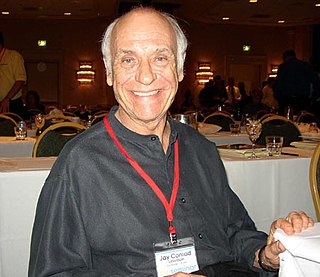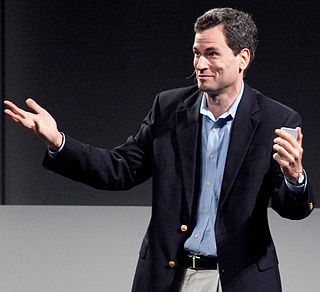A Quote by Seth
Remarkable marketing is the art of building things worth noticing right into your product or service. Not slapping on marketing as a last-minute add-on, but understanding that if your offering itself isn’t remarkable, it’s invisible.
Related Quotes
Marketing is your battle plan for the sales team - it's about defining the landscape. Marketing is doing cohort analysis and understanding exactly what possible customers are out there. It's understanding not only which customers will respond to what messages, but also how customers will become clients if you include certain product features.
You must always look with both of your eyes and listen with both of your ears. He says this is a very big world and there are many many things you could miss if you are not careful. There are remarkable things all the time, right in front of us, but our eyes have like the clouds over the sun and our lives are paler and poorer if we do not see them for what they are. If nobody speaks of remarkable things, how can they be called remarkable?
Traditional sales and marketing involves increasing market shares, which means selling as much of your product as you can to as many customers as possible. One-to-one marketing involves driving for a share of customer, which means ensuring that each individual customer who buys your product buys more product, buys only your brand, and is happy using your product instead of another to solve his problem. The true, current value of any one customer is a function of the customer's future purchases, across all the product lines, brands, and services offered by you.
If you're remarkable, then it's likely that some people won't like you. That's part of the definition of remarkable. Nobody gets unanimous praise - ever. The best the timid can hope for is to be unnoticed. Criticism comes to those who stand out.
Playing it safe. Following the rules. They seem like the best ways to avoid failure. Alas, that pattern is awfully dangerous. The current marketing “rules” will ultimately lead to failure. In a crowded marketplace, fitting in is failing. In a busy marketplace, not standing out is the same as being invisible.
The rise of the citizen review site is a sobering development. No longer are you on top of the mountain, blasting your marketing message down to the masses through your megaphone. All of a sudden, the masses are conversing with one another. If your service or product isn't any good, they'll out you.
Over the past 60 years, marketing has moved from being product-centric (Marketing 1.0) to being consumer-centric (Marketing 2.0). Today we see marketing as transforming once again in response to the new dynamics in the environment. We see companies expanding their focus from products to consumers to humankind issues. Marketing 3.0 is the stage when companies shift from consumer-centricity to human-centricity and where profitability is balanced with corporate responsibility.

































